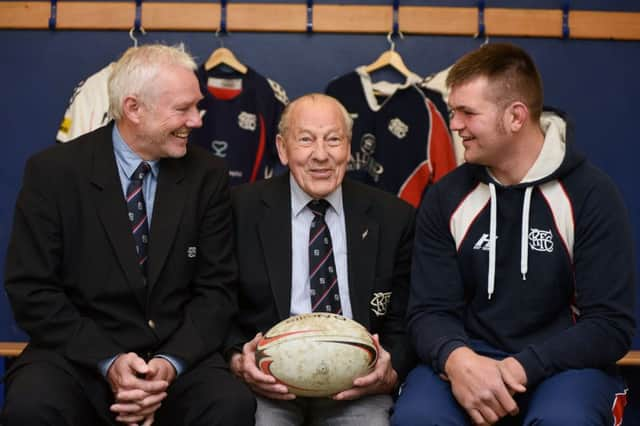Allan Massie: Clubs depend on likes of Jim Inglis


The first is very simple. Club rugby – the amateur game which is what most concerns the vast majority of players – depends entirely on people like Basher and Mary, on people who give hours, days, weeks, months and years of service to their club, and are happy to do so.
They do the necessary work that most of the time goes unnoticed, things that would be noticed only if they weren’t done. They act as secretaries responsible for membership, for fixture lists, for looking after referees. They see to kit and laundry and programmes and transport. They man the gate or, if there is no gate, they may take round a hat. They see that players are fed after a match. They may hand out tea and pies to spectators at half-time. They accompany teams to away matches and see that all is in order. They may run the bar. They spend hours in committee meetings. Over many many years Basher and Mary have done most, perhaps all, of these things, with good humour and commitment, at and for Selkirk. Those of us who only turn up to watch don’t always realise, or remember, how much we owe to such people, but the simple truth is that there would be no club rugby without them.
Advertisement
Hide AdAdvertisement
Hide AdThey’ve mostly gone from the professional game now, for it really is professional in all respects. People are employed in the professional game to do for a salary what the likes of Basher did in the club game for love. This is doubtless as it should be, but in the difficult years of transition from the amateur to the professional game there was often sharp criticism of the SRU committee and the amateur administrators. They were disparagingly referred to as “the Blazers” (Will Carling as captain of England, called the Twickenham blazers something a good deal worse).
No doubt some of the criticism was justified, but what the critics forgot, or chose not to remember, was that nobody was elected to the SRU committee (or the committee in other countries) who hadn’t given years of service to the club game first. If they enjoyed the perks of their elevated position, they had earned them.
Jim Inglis played for Scotland, once, in 1952 against England. It wasn’t unusual then for players to get only one cap. Sometimes, especially in the early Fifties when Scotland didn’t win a single match between February 1951 and February 1955, it seemed there was a revolving door into the Scotland dressing-room. Of course selectors have always been ready to change a losing team, but the Scottish selectors in those days appeared to believe they weren’t doing their job if they didn’t make half-a-dozen changes.
The only time they said “same again” was when addressing a barman. It didn’t seem to occur to them that a player usually takes time to adapt to the international game. Perhaps the most unlucky of the one-cap brigade was Langholm’s Jimmy Maxwell. He was picked to play Ireland in 1957 as an exciting running fly-half. It snowed. Conditions were foul, and after 20 minutes or so he switched positions with Tom McClung who had a more powerful kick. I don’t think Maxwell got a pass after the switch. But the selectors discarded him.
It wasn’t till the SRU reluctantly appointed a coach for the national side – primly describing the first one, Bill Dickinson, as “adviser to the captain” – that there was really any sort of consistency in selection. Nowadays, of course, there are far more international matches, summer tours, too, lots of replacements permitted and used.
Consequently, far more players are capped. Indeed so many are capped that anyone playing regularly for Glasgow or Edinburgh may quite reasonably feel hard done-by (step up, Roddy Grant) if he hasn’t been invited to pull on the Scotland jersey.
On the other hand one-cap wonders are pretty well a thing of the past. Indeed it’s probably only if a player suffers a serious injury which takes him out of the game for a long time, that he is likely to end up with a single cap.
As against that, a player may win half-a-dozen caps without spending as long on the field as the 80 minutes Basher Inglis played in his only appearance for Scotland in the 1952 Calcutta Cup match.